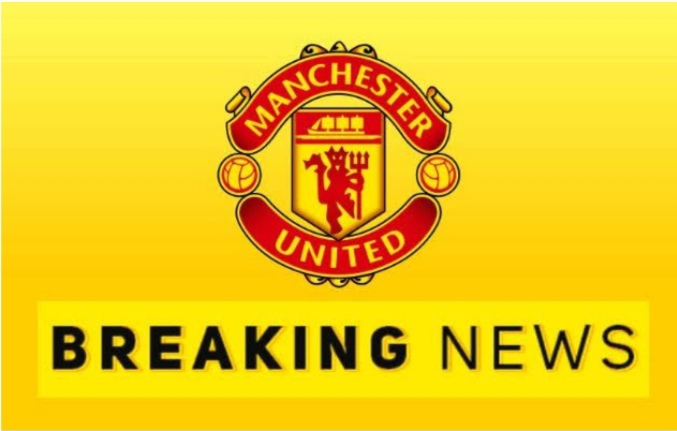Football is no stranger to controversy, but what unfolded in the latest clash has left fans, players, and pundits stunned in disbelief. A single refereeing decision—a red card deemed by many to be “completely unacceptable in modern football”—has sparked a storm of outrage, accusations of bias, and even demands for the match to be replayed.
The fallout has been explosive. From the dressing rooms to the terraces, emotions are running high, with cries of “justice” ringing louder than ever. But is a replay really possible? And how did a single decision turn an entire match into what some are calling “a disgrace to the sport”?
The Decision That Changed Everything
The flashpoint came in the second half, when the referee reached for his pocket and brandished a red card that left players and fans bewildered. To some, it was a clumsy foul worthy of a warning; to others, it wasn’t even a foul at all. Yet in the referee’s eyes, it was violent conduct—an offense deserving of dismissal.
The decision instantly altered the balance of the match. Reduced to ten men, the disadvantaged side struggled to keep shape, conceded control, and ultimately watched their hopes collapse. The ripple effect of the card extended far beyond the final whistle, igniting a firestorm that has yet to die down.
Explosive Reactions
In the immediate aftermath, the outrage was deafening. One furious statement captured the tone perfectly:
“This is completely unacceptable in modern football! How can that possibly be a red card? The entire game from start to finish was biased. The referee and officials were not up to standard—they should be sacked immediately. I don’t care what anyone says, this match was a disgrace.”
The accusation didn’t stop there. After what was described as a “thorough investigation,” the claim was made that there could only be one solution: a replay of the match within the week.
“Justice has to be served—no excuses,” the demand concluded.
Fan Backlash: “We Are Being Robbed”
Supporters, however, are torn between fury and despair. While some echo the calls for a replay, others see it as unrealistic in the packed football calendar. One fan summed up the frustration:
“We are about to be robbed. How is this match supposed to be replayed? This is madness.”
The reaction on social media has been nothing short of explosive. Hashtags calling for justice have trended worldwide, while memes, rants, and video clips of the incident have flooded every platform. Fans of the opposing side, naturally, have defended the referee’s call, claiming that rules were correctly applied. The division in opinion has only intensified the spotlight on football’s officiating standards.
A History of Replay Demands
While rare, football has seen calls for replays before. Infamous incidents, from Thierry Henry’s handball in 2009 to controversial penalty decisions in World Cup qualifiers, have often led to petitions and appeals. But FIFA, UEFA, and domestic leagues are notoriously reluctant to order replays, citing the impossibility of replaying every match marred by controversy.
Still, exceptions have occurred. Matches abandoned due to crowd trouble, technical malfunctions, or administrative errors have been replayed in the past. The current situation, however, revolves around a referee’s judgment—something governing bodies are historically unwilling to overturn.
This is why the present demand feels both extraordinary and improbable. To order a replay would set a precedent with potentially massive consequences for the sport.
Were the Officials Really “Not Up to Standard”?
One of the loudest criticisms has been aimed directly at the referee and his team. The allegation is that they were “not up to standard” and allowed bias—whether conscious or subconscious—to influence the match.
In recent years, referees have come under increasing scrutiny thanks to technologies like VAR, which, while intended to correct mistakes, have paradoxically amplified debates. Supporters of VAR argue that it provides a second chance to get decisions right; critics say it has slowed down matches and introduced fresh controversies.
In this case, the VAR check did not overturn the red card. To many, that was the final straw. If even technology couldn’t save the situation, then perhaps, they argue, the entire system is broken.
The Call for Justice
For those demanding a replay, the issue is about more than one game. It is about fairness in football itself.
“Justice must be served,” one commentator insisted. “This is bigger than one result—it’s about protecting the integrity of the sport. If such blatant mistakes are allowed to stand, then what hope is there for fair competition?”
This perspective has gained traction among pundits and former players, some of whom have voiced their agreement that the refereeing in the match was below par. Yet even they admit that a replay is unlikely.
Practical Realities: Can a Replay Happen?
The reality of football scheduling makes a replay incredibly difficult. Clubs are already navigating congested calendars filled with league fixtures, cup competitions, and international breaks. To slot in a replay within the same week would require reshuffling multiple matches, affecting not just the two teams involved but several others as well.
Financial and broadcast considerations add further complications. Contracts, sponsorships, and global viewership schedules hinge on the reliability of fixtures. A sudden replay could disrupt these agreements and lead to disputes far beyond the football pitch.
What Happens Next?
For now, the demand for a replay appears more symbolic than practical—a rallying cry for justice rather than an actionable plan. Governing bodies are expected to review the match report, but unless extraordinary evidence emerges of misconduct or error, the result is almost certain to stand.
However, the fallout will continue. The referee’s performance will likely be scrutinized in detail, with possible consequences for his career. The players and coaches involved may face disciplinary action for their comments. And fans, left with a sense of injustice, will carry the bitterness forward into future fixtures.
The Bigger Picture: Football’s Trust Crisis
This controversy highlights a broader crisis of trust in football officiating. Fans across the world increasingly believe that referees are failing to meet the demands of the modern game. Each high-profile mistake chips away at the credibility of the sport, leaving supporters wondering whether results are determined by skill on the pitch or errors in judgment.
Calls for reform—whether through improved training, greater transparency, or even radical overhauls of VAR—are growing louder. Until meaningful changes are made, moments like this red card will continue to inflame tempers and erode faith in football’s fairness.
Conclusion
The latest controversy may not lead to a replay, but it has undeniably left a mark on the sport. What began as a questionable red card has grown into a symbol of frustration, sparking outrage, accusations of bias, and renewed calls for reform.
For the players, coaches, and especially the fans, the sense of injustice will linger. Whether justice is truly served or not, one thing is certain: this match will be remembered not for the goals scored, but for the controversy that overshadowed everything else.


